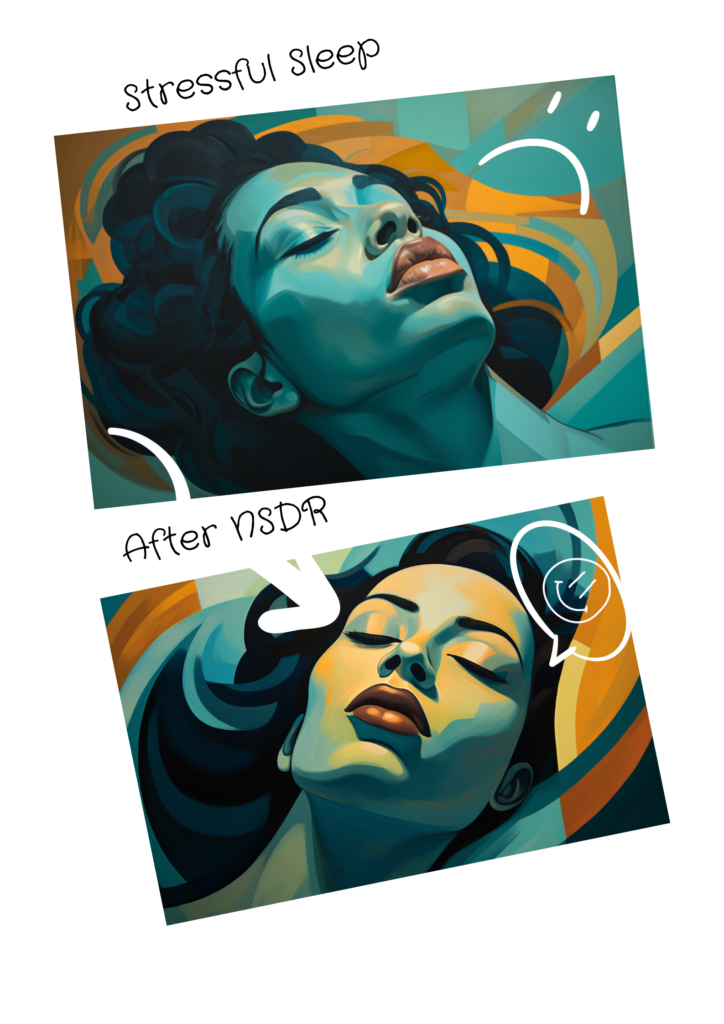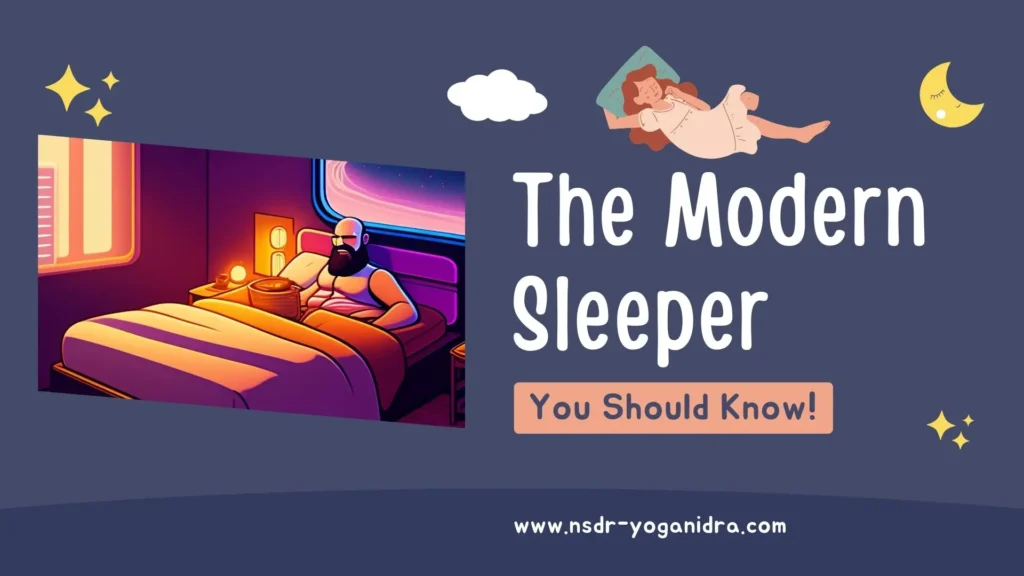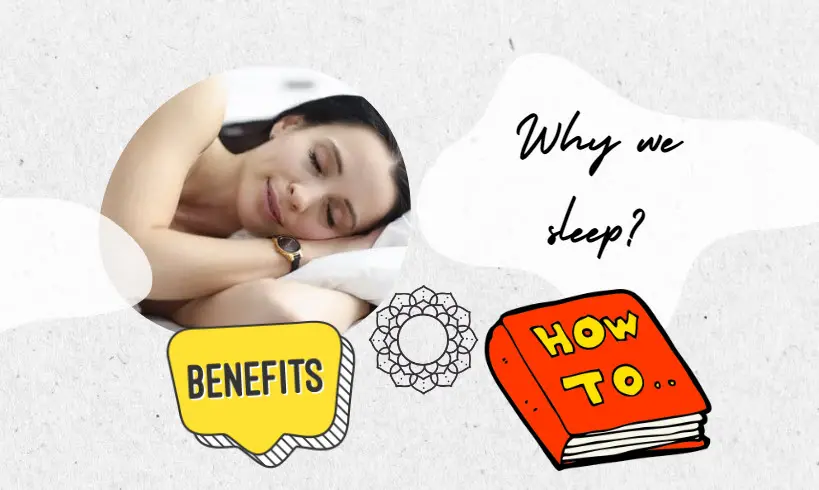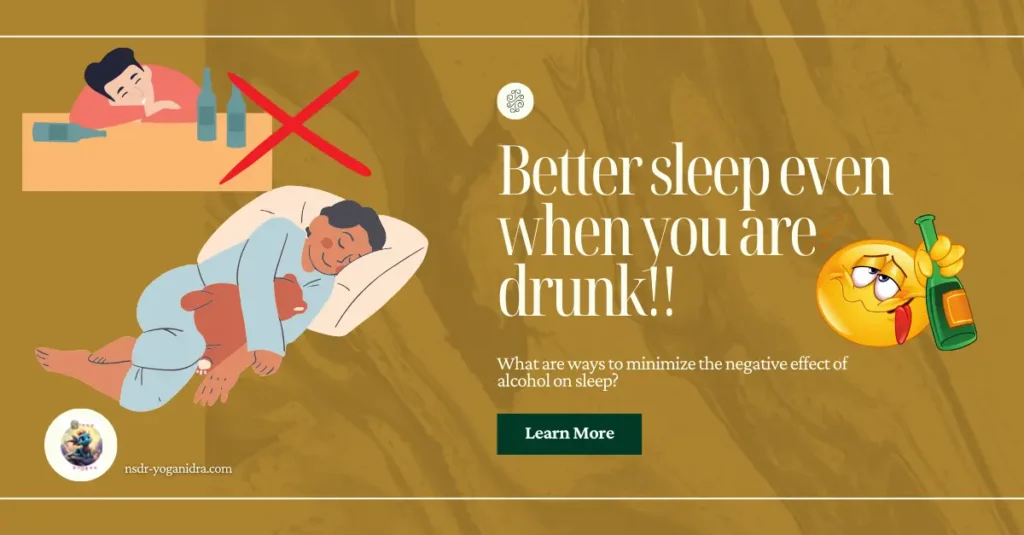The Modern Sleeper: Navigating the Challenges of 21st Century Slumber
The Evolution of Sleep in the Digital Age
Sleeping patterns have transformed drastically in the last few decades, predominantly due to the influence of technology and changing lifestyles. Let’s delve into how exactly our nights have shifted.
From Sundown to Screen-time: Turn off Blue light 1 hour before bef
Once upon a time, our sleep schedules were determined by the sun’s rise and set. Today, the blue light from our screens plays a pivotal role in when we hit the bed. Binge watching your favorite Netflix show, doesnt help much. Blue light inhibits the secretion of melatonin, a hormone responsible for inducing sleepiness. While this effect is beneficial for staying alert during daytime, it can be counterproductive at night when we’re aiming to fall asleep.

The 24/7 Work Culture
The boundaries between work and rest have blurred. With the rise of remote work and global collaboration, the traditional 9-to-5 has been replaced with erratic hours that often encroach upon our sleep time. It takes a few hours to unwind and get prepared for sleep. Its important for the brain to slow down. The parasympathetic nervous system must take over and it can only do some once you are relaxed and you can unwind.
The Science Behind Sleep Deprivation
The repercussions of chronic sleep deprivation are both immediate and long-term.
Cognitive and Emotional Impact
Lack of sleep not only affects our ability to think clearly but also plays a significant role in our emotional well-being. Researchers assessing levels of sleepiness have discovered that lack of sleep results in diminished alertness and focus. Concentration becomes challenging, leading to increased susceptibility to confusion. This negatively affects one’s capacity to execute tasks demanding logical analysis or intricate thinking. Additionally, sleep deprivation compromises decision-making abilities.
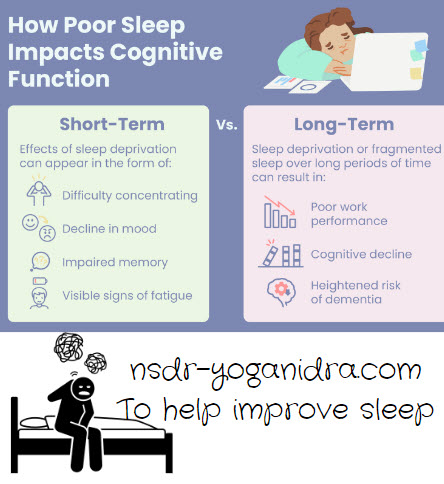
Physical Health Implications
Consistent sleep deprivation can lead to a host of health issues, from obesity to cardiovascular diseases.
Modern Solutions for Modern Sleep Problems
It’s not all doom and gloom. With awareness comes the power to change. Here’s how we can adapt and ensure a good night’s sleep.
Digital Detox for Better Sleep
Reducing screen time, especially before bedtime, can work wonders for your sleep quality.
The Power of Routine
Establishing a consistent sleep schedule, even on weekends, can help reset our internal clocks.
The Future of Sleep
With the rapid advancements in technology and research, what can we expect in the realm of sleep in the coming decades?
Sleep Tech: Boon or Bane?
From sleep trackers to smart beds, technology is making its mark in the world of sleep. Having some kind of sleep tracker can help track sleep quality. You can understand things that may be affecting you. For example: Watching Netflix and sleepin and Vs not watching. While we understand the latter is better, having conclusive data can help you eliminate specific habits.
The Role of AI in Sleep Analysis
How artificial intelligence is revolutionizing the way we understand and improve our sleep.
The Potential of Genomic Sleep Studies
With advancements in genetics, we’re on the brink of personalizing sleep solutions based on our DNA.
Virtual Reality: The New Dream Realm?
Exploring the potential of VR in inducing and enhancing our dreams.
Solution to improve sleep
Schedule tech-free hours: Dedicate certain hours of the day to be completely tech-free, especially during mealtimes or family time.
Designate a charging station outside the bedroom: This ensures that you’re not tempted to check your phone if you wake up during the night.
Mindfulness and Meditation
These practices can help anchor your thoughts and promote relaxation.
* Try guided meditations: Apps like Calm or Headspace offer short, guided sessions tailored for sleep.
* Practice deep breathing: Deep, rhythmic breathing can help calm the mind and body, preparing you for sleep.
At Sleep Dragon and NSDR-yoganidra.com we are all about restfulness and calm. Try one of our Yoga Nidra and see if it helps. Here is the science behind it.
Practical Tips for Better Sleep
a. Regulate Your Sleep Schedule
Irregular sleep patterns can disrupt your body’s internal clock.
Solution to regulate sleep schedule
* Set a strict bedtime: Even if you don’t feel sleepy, getting into bed can signal to your body that it’s time to wind down.
* Wake up at the same time every day: Yes, even on weekends! This reinforces your body’s sleep-wake cycle.
Watch Your Diet: What you consume can significantly affect your sleep quality.
* Limit caffeine after 2 pm: This includes coffee, certain teas, and many sodas.
* Avoid heavy meals before bedtime: Eating a large meal can cause discomfort and indigestion, making it harder to sleep.
Embracing a Holistic Approach
a. Physical Activity and Sleep: Your activity levels during the day can influence your sleep at night.
* Incorporate daily exercise: Even light activities like walking can improve sleep quality. However, avoid vigorous exercise close to bedtime.
* Stretching routines: Gentle stretches before bed can help relax your muscles and prepare your body for sleep.
The Emotional Aspect: Emotional well-being is intrinsically linked to sleep quality.
* Speak about your anxieties: Whether it’s with a friend, family member, or therapist, talking can be therapeutic.
* Practice gratitude: Keeping a gratitude journal can shift focus from worries and promote positive feelings before bed.
Adopting healthy practices will definitely help improve sleep. If you still have issues or questions feel free to write to us at NSDR-yoganidra.com.
